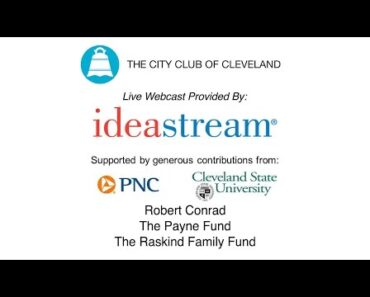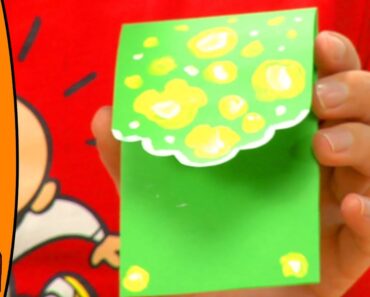Asthma is a condition wherein the airways get inflamed and swollen and obstruct breathing. If your child has asthma, it is essential to monitor it closely and have a plan in place to keep the symptoms at bay. In severe cases, it can lead to an emergency situation, such as an asthma attack.
Although there is no cure for asthma, with proper care, you can help your child have a normal childhood. Read this post to understand the symptoms and causes of asthma in children and learn about the treatment options available.
Symptoms Of Pediatric Asthma
It could be challenging to understand if your child has asthma, as the initial symptoms may seem like common respiratory conditions, such as cold and cough. Asthma symptoms occur frequently and affect the child’s quality of life.
Monitor your child closely for a few weeks if they show the following early signs of asthma.
- Changes in breathing, such as shortness of breath
- Sneezing and chronic runny nose
- Moodiness and lethargy due to fatigue
- Coughing
- Itchy throat
- Constant fatigue
- Dark circles under the eyes
- Insomnia due to persistent coughing and wheezing
- Exercise intolerance due to fatigue and breathlessness (1)
Among these early symptoms, some might become persistent and indicate an asthma attack.
Some common symptoms of asthma are:
- Recurrent wheezing, especially at night or early in the morning
- Coughing that occurs in the absence of viral infection, and that is triggered by exercise, laughing or crying, or when the child is asleep
- Chest tightening
- Shortness of breath
One of the early and most common signs of asthma is wheezing. Studies suggest that approximately one-third of children experience wheezing during the first three years of life, out of which 40% may develop early-stage asthma. However, in most children, the severity of mild asthma symptoms might reduce in early puberty or even disappear (2). If the condition is severe, the symptoms could remain in children or even return in adulthood.
Severe symptoms of pediatric asthma include:
- Severe coughing
- Tightness in the chest
- Extreme wheezing
- Shallow and fast breathing
- Hunched shoulders (posturing)
- Retractions in the neck area and area below the ribs
- Bluish tint on the skin and mucous membranes (cyanosis)
- Constant gasping for air (1)
If you notice any of the above symptoms in your child, take them to the doctor at the earliest.
Causes Of Asthma In Children
The causes of asthma are not known, and it can develop at any age. Asthma in children is associated with allergies, which can range from cow milk allergy to allergies due to pollen, animal dander, fungal spores, and house dust mite.
When the child inhales any of the allergens, their body produces IgE antibodies, resulting in airway inflammation. However, studies state that asthma may also occur in children without any allergic sensitization (2) (3).
Risk Factors And Complications Of Asthma
External triggers can increase the risk of asthma in children. Here are some common risk factors of asthma (4).
- Exposure to irritants, such as smoke, aerosol sprays, dust, and air pollution
- Allergy triggers including pollen, fungal spores, animal dander, dust mites, cockroaches, animal hairs, and feathers
- Certain types of exercises
- Cold and flu infections
- Sinusitis
- Automobile pollution
- Weather
- A family history of asthma
The risk factors might vary from child to child, so it is important to closely observe your child and determine what is triggering the symptoms of asthma in them.
Asthma is a long-term complication that needs to be managed throughout life. Asthma can have an impact on the quality of life in children. Some of the complications of asthma include:
- Sudden asthma attacks that need emergency medical care
- Missing out on school or falling behind
- Decreased lung function
- Insomnia and fatigue
- Inability to participate in sports, exercise, and outdoor activities
- Increased time in the hospital
Diagnosis Of Asthma
It is essential to diagnose asthma at an early stage to prevent it from progressing and turning into a chronic condition. If you find any of the early signs, it is best to consult a pediatrician.
According to the modified Asthma Predictive Index (API), a child is likely to develop asthma at a school-going age if they are diagnosed with four or more wheezing episodes per year and if they fulfill any one of the following major criteria.
- Physician diagnosis of atopic dermatitis at the age of two or three
- Physician diagnosis of asthma in a parent
Or if the child meets at least two of the minor criteria, including
- Physician diagnosis of allergic rhinitis
- Wheezing apart from cold
- 4% of Eosinophilia (5)
Your doctor would enquire about your child’s medical history and your family history. They would also enquire about the presence of early warning signs, such as coughing or wheezing. Your child’s doctor might also prescribe the below tests to understand the condition better.
- Breathing tests using a spirometer
- Chest X-rays
Treatment Of Asthma In Children
Asthma cannot be cured and needs to be managed to keep the symptoms at bay. Your child’s doctor might prescribe medications for occasional or daily use based on the severity of the condition.
The medications may help relieve the symptoms and prevent asthma attacks by reducing the inflammation of the airways. The medications may usually include inhaled corticosteroids (ICS) to reduce airway swelling and mucus production, but some children may be given oral medications.
Your child’s doctor would regularly measure your child’s lung function using spirometry and peak flow meter to assess the condition and make changes to their medications.
Medications For Asthma
The medications for asthma are divided into two broad categories — long-term and quick-relief. Let’s have a look at both of these in detail.
- Long-term medications need to be taken regularly to keep the symptoms of asthma in check. These medications need to be taken even when the child’s asthma gets better. The medications include steroids, bronchodilators, muscle relaxants, and beta antagonists.
- Sometimes, your child might need some quick-relief medications to open up the airways. These are helpful in case of an asthma attack and include steroids, muscle relaxants, and anticholinergics.
These medications are may have side effects, including growth suppression, weight gain, osteoporosis, muscle weakness, and a weakened immune system. So, talk to your child’s doctor to minimize these side effects (6) (7).
Management Of Asthma In School-going Children
Asthma could be a problematic condition in school-going children as they may have to be careful not to strain themselves and should know how to handle an asthma attack. Here are a few useful steps to teach your child.
- Educate your child about their condition. Do not scare them, but subtly tell them how important it is to communicate any slight disturbance they might be facing at school.
- Create awareness about your child’s condition among their caretakers, teachers, and fellow students.
- Prepare an asthma action plan, which includes the medications the child needs to take during school hours, emergency telephone numbers, and quick-relief medications in case of a sudden attack.
- Make your child understand why they should not eat certain foods and how it can affect their health. Identify the allergy-causing agents and ask your child to keep away from them.
- Give your child nutritious food. You can also talk to your doctor about giving them any additional supplements.
- Talk to the school authorities about including your child in physical activities. Children with asthma can participate in physical activities such as running and playing soccer if their symptoms are under control. But if the child has recovered from a recent asthma attack, physical activities should be modified in type, length, and frequency (8).
Prevention Of Asthma
You cannot prevent asthma, as there is no definite cause for it. However, you can minimize the symptoms and restrict the attacks by diligently following the doctor’s advice and medications. Besides, you also need to identify the triggers that might be causing the flare-ups in your child.
Once you have identified these triggers, make sure to keep your child away from them.
You can also follow certain home care treatments to help relieve the symptoms and minimize sudden asthma attacks. Read the next section to find more information about them.
Home Care Measures For Asthma
The following home care treatments might help relieve the symptoms of asthma. However, make sure you consult your child’s doctor before trying any, as some of these treatments may not have scientific backing.
- Try to maintain a low humid environment at home. If you live in a place where the air is humid, talk to your child’s doctor and use a dehumidifier.
- Keep the house dust- and insect-free. Make sure you clean the air conditioning filters and the heating systems frequently. You may also use a small-particle filter.
- Clean the surfaces, change the bed sheets every other day, and keep the premises dust-free.
- If you have a pet, make sure to keep their hair away from your child. Frequent bathing and combing might help get rid of some of the shed air.
- Some children might have trouble with cold air, whereas, for others, it could be hot weather. Identify the trigger and keep your child safe.
- Studies suggest that yoga can help reduce the number of asthma attacks and the use of drugs in asthma patients. So, teach your child breathing exercises for the airways (9).
- Teach your child the Buteyko and Papworth breathing exercises to help them keep the symptoms in check. These techniques consist of a series of breathing exercises that involve the nose and the diaphragm. Studies suggest that these methods decrease daily symptoms of asthma and show a significant improvement in the peak flow rates (10) (11).
Asthma is a condition that requires long-term care. It is quite challenging to manage this condition in children. Educate your child about their health condition and make sure you clarify their doubts. With proper medication, awareness, and care, your child can have a normal childhood despite having asthma.

































